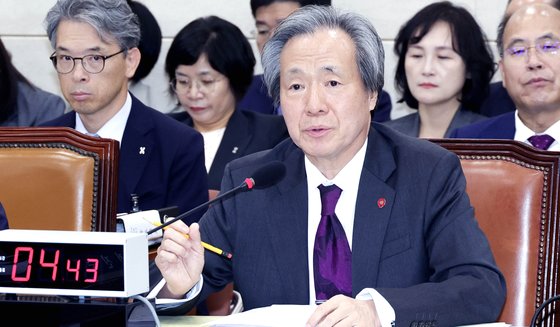With the Response n 229/2024 Revenue clarifies the tax treatment applicable to the amount received in 2023 by the heir tax resident in Italy of a non-resident individual by way of liquidation of a US pension fund.
It replies to an heir-instant which highlights:
- to be tax resident in Italy and to be the only heir of an Italian and US citizenresident in the USA for over forty years and died there in 2021;
- that the state inheritance tax of 1 percent was paid on the total value of the inheritance in the American state of residence of the deceased;
- that the deceased appeared to be the owner, among other things, of a “pension account”, included in the inheritance estate subject to inheritance tax in the USA, managed by a US company consisting of two pension plans, fueled by contributions from the deceased and the employer, as well as with the reinvestment of income accrued on investments made from the management of the fund itself;
- That ” At the date of his death, which occurred at the age of 84, the deceased, even if he had not requested its liquidation, if not partially, had already acquired the right to receive the annuities periodically, so much so that the consistency of the funds was declared for inheritance tax purposes”;
- that in 2023 the payment of the amount of ….. as liquidation and closure of the pension fund was arranged in favor of the applicant;
- this amount was not subject to withholding in the USA and was indicated in the 1042S form issued by the management company of the Pension Fund among ”pensions, annuities, alimony and/or insurance premiums”, exempt from taxes.
This being so, wonders whether the amount received in 2023, as payment from the Pension Fund:
- a) sia to be subject to taxation, as capital income pursuant to articles 44 and 45 of the decree of the President of the Republic of 22 December 1986, n. 917 (hereinafter Tuir), with reference exclusively to the increase in value accrued from the date of opening of the succession to the date of liquidation, with the application of the substitute tax of 26 percent,
- b) is to be classified as income from employment of the deceased, pursuant to article 49, paragraph 2, letter a) of the TUIR, which equates to employee income «pensions of all kinds and allowances equivalent to them» and therefore, since received by an heir, subject to separate taxation pursuant to article 7, paragraph 3 of the same consolidated law. If this last interpretative theory were applicable, the Petitioner asks what the taxable base should be subject to separate taxation.
Briefly, the Agency replied that the pension is equated to income from employment, let’s see what this entails.
1) US pension fund: tax treatment for the heir
1) US pension fund: tax treatment for the heir
IThe ADE opinion concerns exclusively the method of taxation of the amount received in the tax year 2023 by the Applicant as an heir, fiscally resident in Italyof a person resident in the USA, by way of liquidation of the Pension Fund.
In this regard, article 49, paragraph 2, of the TUIR provides that «The following also constitute employee income: a) pensions of all kinds and allowances equivalent to them (…)».
Furthermore, pursuant to article 7, paragraph 3, of the TUIR, «In the event of the death of the person entitled, the income which according to the provisions relating to the category to which it belongs is attributable to the tax period in which it is received, determined in accordance with the provisions themselves, is taxed separately in accordance with the articles. 19 and 21, without prejudice to the provisions of paragraph 3 of the art. 17, even if they do not fall within the income indicated in the same art. 17, towards the heirs and legatees who received them”.
In essence, explains the agency, the income received by the heirs must be subject to taxation with the same methods that would have been applied if the sums had been paid to the deceased.
As clarified with answer no. 5 published on 11 January 2024 «by express regulatory provision, income from ”pension” is equated to that of ”employee work”.
The Revenue specify that for taxation purposes various opinions of practice have been formulated which have clarified the following:
- in the circular dated 17 July 2020, n. 21/E, albeit with reference to the subjects who intend to make use of the regime referred to in 24 ter of the TUIR, it has been clarified that pension income of all kinds and equivalent allowances paid exclusively by foreign subjects constitute ”pension” income.
- it is highlighted that the normative expression «pensions of all kinds” leads to considering also included in the scope of the aforementioned paragraph 2 of article 49 of the TUIR all those one-time allowances (think about the capitalization of pensions) disbursed based on the payment of contributions and whose disbursement may occur regardless of the termination of an employment relationship. These emoluments are attributable, ordinarily, according to the tax system in force in Italy, to the income referred to in article 49, paragraph 2, letter a), of the TUIR, which equates to income from employment «pensions of all kinds and allowances equivalent to them»as the Italian supplementary pension provisions do not apply to the same benefits.
In the case in question, in application of the legislation and in line with the illustrated practice, it is believed that the amount received in a single payment in 2023 can be traced back to “pensions of all kinds and allowances equivalent to them” referred to in article 49, paragraph 2, letter. a) of the Tuir for whichpursuant to the aforementioned article 7, paragraph 3, of the same TUIR, in place of the ordinary tax regime, the separate taxation regime applies to the entire amount received provided for by the following article 17, as these are sums received as an heir.
**In your opinion, what are the ethical implications of different countries applying their own tax regulations to international pension distributions, potentially leading to double taxation scenarios?**
Here’s a breakdown of open-ended questions for an interview structured around the provided text, along with thematic sections:
**I. Understanding the Inheritance Situation**
* **The article mentions a US pension fund. Can you elaborate on the deceased’s employment history and how this pension came to be?** (This digs deeper into the specifics of the pension’s origin.)
* **How does the fact that the deceased, even without requesting it, had the right to receive annuities periodically impact our understanding of this pension?** (This explores the legal nuances surrounding the pension payments.)
**II. Taxation in Italy and the US**
* **The article highlights different tax treatments between the US and Italy. Could you explain the rationale behind these differences in approach to pension distributions?** (This encourages a comparative analysis of tax systems.)
* **What are the potential implications, both for the heir and for estate planning purposes, of the Italian tax system considering US pension distributions as “employee income”?** (This prompts reflection on the practical consequences of the tax treatment.)
**III. The 1042S Form and its Significance**
* **The article mentions a 1042S form. What purpose does this form serve in the context of US pensions, and what information does it provide to both the recipient and tax authorities?** (This focuses on a key document and its implications.)
* **Given the information on the 1042S form, do you foresee any potential conflicts or inconsistencies between the US and Italian tax assessments on this inheritance?** (This invites a discussion of potential cross-border tax issues.)
**IV. Looking Ahead: Estate Planning and Taxation**
* **Based on this case, what advice would you give to individuals with assets in both the US and Italy, particularly regarding pension plans, to minimize potential tax complexities for their heirs?** (This seeks practical advice from an estate planning perspective.)
* **Do you anticipate any changes in Italian tax laws regarding foreign pensions in the future? What factors might influence such changes?** (This explores potential future developments in tax regulations.)
**V. Broader Ethical Concerns**
* **Some argue that treating pension distributions from foreign countries as “employee income” may not accurately reflect the nature of these payments. What are your thoughts on this argument?** (This opens up a discussion on fairness and the adequacy of tax classifications.)
**Important Notes for Conducting the Interview:**
* **Active Listening:** Encourage the interviewee to elaborate and provide examples.
* **Respectful Dissent:** Allow for differing viewpoints and engage in constructive debate.
* **Clarification:** Don’t hesitate to ask for further explanation if something is unclear.
* **Context:** Keep the specific case study in mind while also encouraging broader reflections on inheritance, tax, and international financial planning.


